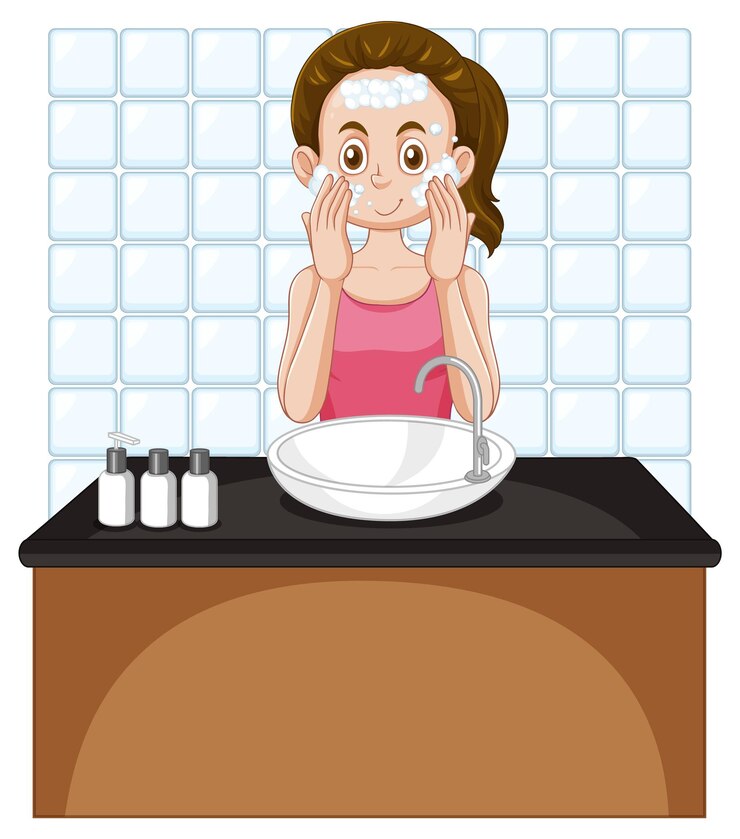
Nourishing Your Skin: Understanding Dietary Factors and Seborrheic Contact Eczema
Introduction: When it comes to managing skin conditions like seborrheic contact eczema, what you eat can play a significant role. While there’s no magic diet to cure eczema, certain dietary factors can influence the severity of symptoms and overall skin health. Let’s explore the connection between nutrition and seborrheic contact eczema and how you can optimize your diet to support your skin.
Understanding the Role of Nutrition:
- Inflammation: Certain foods can trigger inflammation in the body, which may exacerbate symptoms of seborrheic contact eczema. These foods include processed foods high in sugar and unhealthy fats, as well as refined carbohydrates like white bread and pastries.
- Nutrient Deficiencies: A balanced diet rich in essential nutrients is crucial for maintaining healthy skin. Nutrient deficiencies, such as vitamin D, vitamin E, omega-3 fatty acids, and zinc, have been linked to an increased risk of eczema and may contribute to its severity.
- Gut Health: The gut-skin connection is a growing area of research, suggesting that gut health plays a role in skin conditions like eczema. Probiotic-rich foods like yogurt, kefir, and fermented vegetables may help support gut health and potentially improve eczema symptoms.
Exploring Dietary Strategies:
- Anti-Inflammatory Foods: Incorporate more anti-inflammatory foods into your diet, such as fruits, vegetables, leafy greens, nuts, seeds, and fatty fish like salmon and mackerel. These foods contain antioxidants and essential nutrients that can help reduce inflammation and support skin health.
- Hydration: Drink plenty of water throughout the day to stay hydrated and support skin hydration. Herbal teas, coconut water, and infused water with fruits or cucumbers are excellent hydrating options.
- Omega-3 Fatty Acids: Include sources of omega-3 fatty acids in your diet, such as flaxseeds, chia seeds, walnuts, and fatty fish. Omega-3s have anti-inflammatory properties and may help reduce eczema symptoms.
- Limit Triggers: Identify and limit potential dietary triggers that may exacerbate eczema symptoms, such as dairy, gluten, and certain food additives or preservatives. Keep a food diary to track your diet and any corresponding changes in your skin condition.
Conclusion:
While dietary factors alone may not cure seborrheic contact eczema, they can play a significant role in managing symptoms and supporting overall skin health. By adopting a balanced diet rich in anti-inflammatory foods and essential nutrients, you can nourish your skin from the inside out and complement other treatment strategies for eczema management.
To seek medical advice, always consult a Doctor. Here are our recommended EXPERTS. Click here
To read more on SKIN. Click Here
To read more on SKIN. Click Here
Recent Posts
Dr. Karan0 Comments
Preventing Gum Disease: Key Habits and Dental Check-ups
Dr. Karan0 Comments
Recognizing the Signs and Symptoms of Gum Disease:
Tags
#support
arthritis
Blood tests
causes
Children
complications
coping strategies
diabetes
diagnosis
diet
eczema
exercise
Healthy Lifestyle
Heart Disease
heart health
High blood pressure
hormonal imbalances
Hormones
hydration
india
Indian patients
inflammation
lifestyle changes
management
medication
Medications
mental health
Nutrition
pain management
physical therapy
pregnancy
prevention
recovery
risk factors
signs
skincare
skin condition
stress management
stroke
support
surgery
symptoms
transmission
treatment
treatment options


